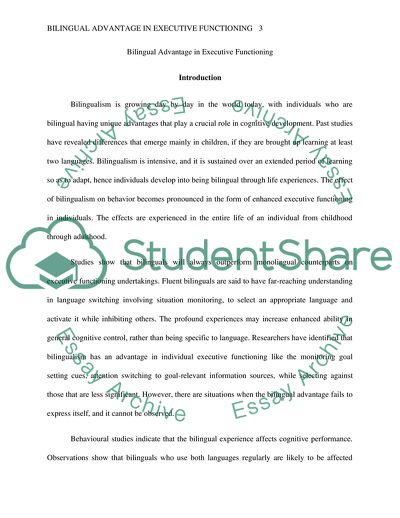Cite this document
(Bilingual Advantage in Executive Functioning Coursework Example | Topics and Well Written Essays - 3000 words - 1, n.d.)
Bilingual Advantage in Executive Functioning Coursework Example | Topics and Well Written Essays - 3000 words - 1. https://studentshare.org/education/1868968-is-there-a-bilingual-advantage-in-executive-processing
Bilingual Advantage in Executive Functioning Coursework Example | Topics and Well Written Essays - 3000 words - 1. https://studentshare.org/education/1868968-is-there-a-bilingual-advantage-in-executive-processing
(Bilingual Advantage in Executive Functioning Coursework Example | Topics and Well Written Essays - 3000 Words - 1)
Bilingual Advantage in Executive Functioning Coursework Example | Topics and Well Written Essays - 3000 Words - 1. https://studentshare.org/education/1868968-is-there-a-bilingual-advantage-in-executive-processing.
Bilingual Advantage in Executive Functioning Coursework Example | Topics and Well Written Essays - 3000 Words - 1. https://studentshare.org/education/1868968-is-there-a-bilingual-advantage-in-executive-processing.
“Bilingual Advantage in Executive Functioning Coursework Example | Topics and Well Written Essays - 3000 Words - 1”. https://studentshare.org/education/1868968-is-there-a-bilingual-advantage-in-executive-processing.


